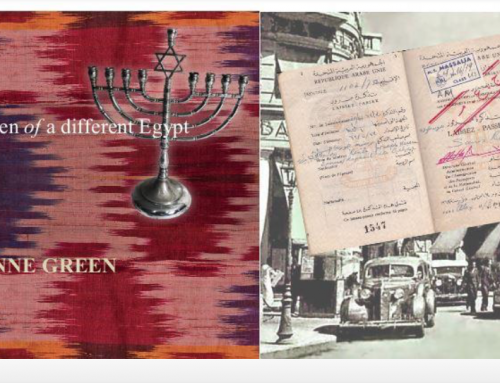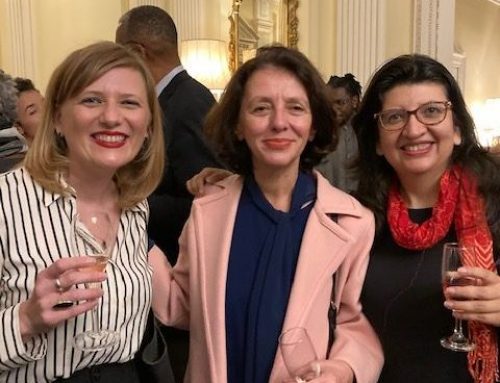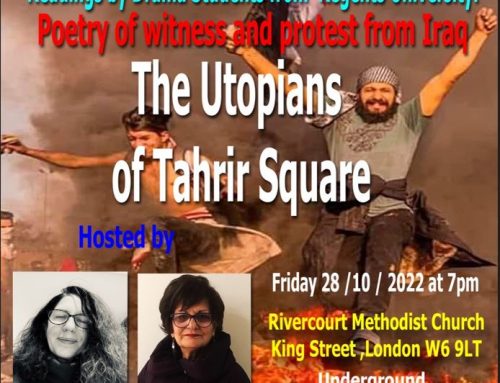In March 2022, Exiled Writers Ink organised an exciting event hosted by Pen to Print: ‘Women Writing Resistance through Poetry’
This article is by © Madeleine White, 2022 as originally published for write on Pentoprint.org
A couple of nights ago, my 24-year-old daughter was sitting in a nightclub I’d frequented in the eighties, canoodling with poet Seamus Heaney. I woke up angry, the inappropriacy still thrumming through me. Then I remembered that Seamus was dead, the nightclub demolished, and Lucy is in a long-term and age-appropriate relationship.
This morning, though, as I seek to explore how our imagination has the power to transform as well as inform, I’m taken back to this scene. It’s still as indelibly etched in my mind as last night’s family dinner. I find myself wondering about the boundaries between what’s real and what’s not, at which point one blurs into the other, and the power of our words to manifest these worlds.
In my 2020 speculative debut Mother Of Floods, I explore the idea of us humans as creators. How, by tapping into the world unseen (the digital and spiritual) we can create new realities: co-created by our willingness to see the world in a different way.
In some of humanity’s earliest myths and legends, the tradition of naming is strong. I use this idea to imagine how the world might look if we embrace our power as creators in an anthropocentric universe. The process goes something like this: First, we observe and therefore shape the nature of what we are observing. Next, we name it to affirm the existence of what we have seen and believe to be true. Finally, it manifests in the ‘real’ world.
A recent event, hosted by Pen to Print with ‘Exiled Writers’ (an organisation for writers of the diaspora, or who have become disconnected from the place they identify as their original home) brought the aforementioned process into sharp relief for me. Dr Jennifer Langer, Elena Croitoru, Catherine Davidson and Anba Jawi provided different perspectives on contemporary poetry through the lens of place and conflict. These talented wordsmiths used the power of words to interweave the reality of their lives now, with the worlds they had once inhabited.
Nearly a decade ago, I started working with in-country and diaspora Iraqis to create the bilingual Nina magazine. Though I only understand a couple of words of Arabic, Anba Jawi’s mellifluent reading brought the song of the poetry in translation to life, reminding me of that time. However, the extracts from The Utopians of Tahrir Square were not only about the past: the anger, loss and hope contained, spoke into my present reality also. When Jennifer then read extracts from The Search, bringing in the German nursery rhyme Hoppe Hoppe Reiter, nostalgia turned into gut-wrenching pleasure-pain, which finally manifested as unexpected tears.
Jennifer’s experience of exile is one of being brought up by German-Jewish parents who’d fled the holocaust. I was exiled from my home country when my mother fled my father’s first psychotic episode when I was ten; part of the bi-polar condition that dogged the rest of his life. Jennifer’s disconnect and pain touched my world. Elena’s poetic description of the concrete blocks of her childhood in Ceaușescu’s Romania (The Country With No Playgrounds), transported me with that same immediacy. Though the pangs of recognition were not quite the same, the sense of loss still resonated.
My own writing journey started as a child, and my need to make sense of a world I couldn’t grasp. I wanted to create a place for myself in which I felt safe, where my past and present intertwined through a narrative I had created. Half-real and half– well, in the same place I met my daughter with Seamus Heaney… As writers, we all aspire to that place and hope that readers, whether numbering one or in their millions, will follow us on our journey. After all, if they observe it, and participate with us, that means our own world has become part of a wider reality also, doesn’t it?
In his recently released The Order Of Time, Carlo Rovelli tells us our world is not made up of a series of stones (things); rather, from a series of kisses (events) – each one leading to another door that opens.
What better way to manifest this series of kisses than to put words on a page; linking the word we see to the world we don’t, but giving equal credence and shape to both. We are time. We are this space, this clearing opened by the traces of memory inside the connections between our neurons. We are memory. We are nostalgia. We are longing for a future that will not come.
Nothing is definite. Instead, we are beings of infinite potential, with the power to draw on the world seen and unseen, expertly spinning the web of past and future around our ever-changing present.




